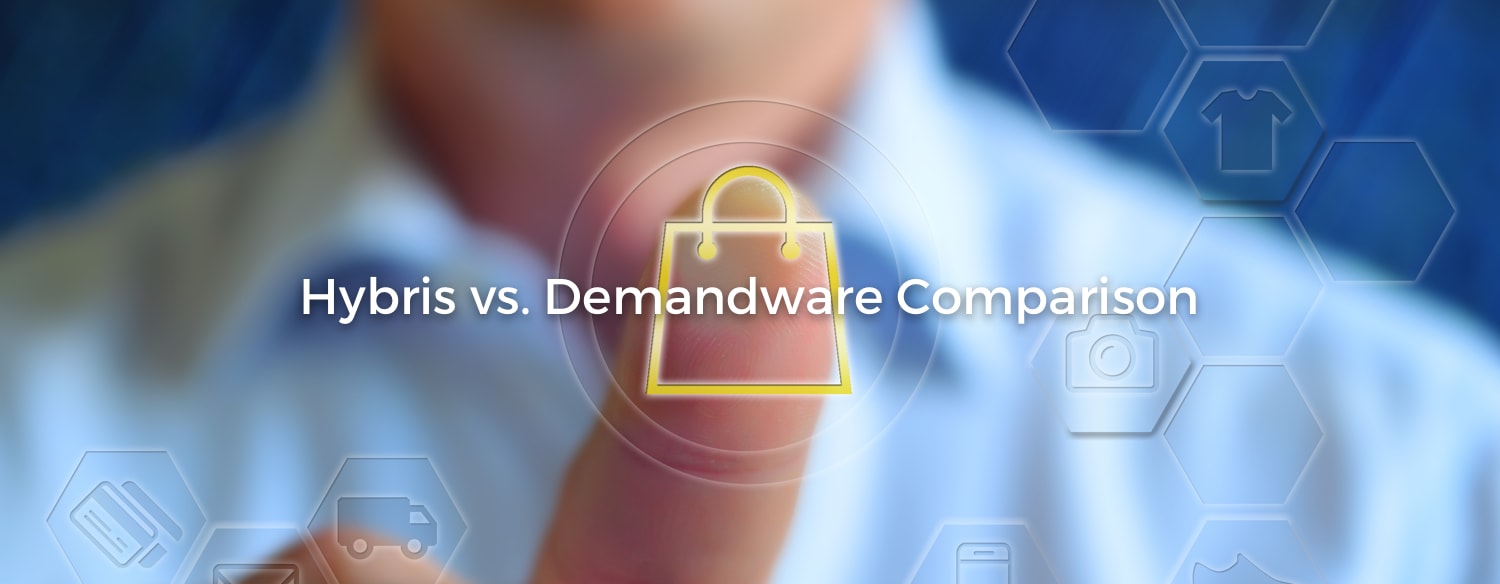Let’s Talk.
Start with a conversation. From there, we can build a plan.

As big names in the eCommerce world, Hybris and Demandware can serve as the foundation for your online store. However, since these two platforms represent different approaches to eCommerce, one may be better for your website than the other. Hybris has a focus on appealing to large-scale multichannel operations, while Demandware is a more than capable solution to B2C retail operations. But if that’s not enough for you to decide, read on to see how they stack up.
Hybris
As a Java-based solution, Hybris provides an intuitive setup with easy to work with features. It works best for those who are on an enterprise level and have a large-scale amount of business to handle. It also ties in well with businesses who work in B2B, but you can make a B2C store work through it. You’re looking at high starting and ongoing costs, no matter what kind of website you develop. Depending on the scale of your project, you may be looking at a long implementation time for making your site go live, and you’ll need technical staff to help maintain it.
Demandware
While Demandware has done some work toward becoming an omnichannel platform, this eCommerce solution works best for B2C companies. Unlike Hybris and other solutions, Demandware takes less to support, and it implements faster for quicker project start to launch times. You’re looking at an efficient system that can support small- to mid-size retailers – but not those who need complex B2B pricing options.
Which One Is Best for You?
Both Hybris and Demandware are more than capable of running an efficient website. As you may have guessed already, if you’re a B2B or hybrid merchant, you’re going to have much more luck working with Hybris, as it can handle those types of sales much better. If you’re B2C, you’ll want to consider a little bit more than that.
Primarily, one of the biggest influences in your choice will be the scale of your business. Hybris works great for large-scale companies, especially those that need highly customized and multichannel operations. That’s reflected in the initial and ongoing price you’ll face with this platform. Of course, there isn’t a free version of Demandware, either, so you can expect costs on either end of the solution. However, a smaller business will have better options with Demandware than it will trying to work in Hybris’ solution.
You’ll also want to think about implementation time. It is possible to build the eCommerce website you want with Hybris, but it’s not unheard of for these projects to take years to complete, not to mention the technical needs. On the flipside, Demandware can reliably launch much faster, and it takes fewer technical resources to keep operational over time.
In short: large B2B companies that don’t mind a long implementation timeline can get started with Hybris. Smaller to mid-size B2Cs that are ready to launch their eCommerce site in a short time frame: Demandware will serve you well. Reach out to digital experts at Forix to hear more. Implement Adobe Commerce Cloud on your eCommerce website with the help of Forix.
Start with a conversation. From there, we can build a plan.
